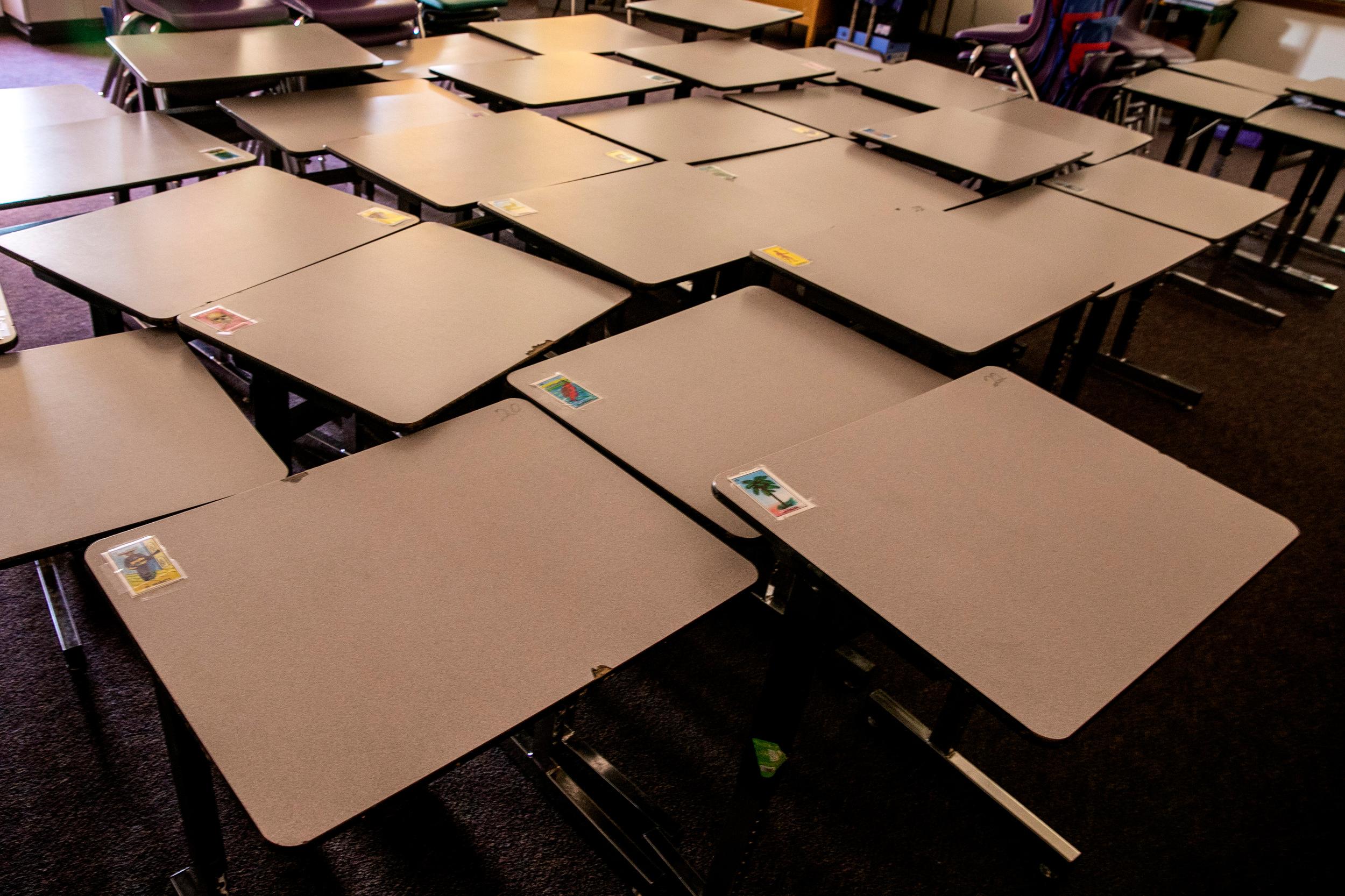
Colorado’s lawmakers have one main focus for the next few weeks: cuts, cuts and cuts.
When they reconvene at the legislature next week, they will have to find agreement on how to reduce state government spending for next year by billions of dollars.
The damage may be heaviest for education, health and social support programs, which make up the largest part of the budget. Democrats have even said they're willing to consider rolling back the state’s new full-day kindergarten funding.
But some progressive groups think there’s another way: Find more money.
“We’ll start to reach kind of ludicrous levels of budget cuts,” said Scott Wasserman, president of the progressive-leaning Bell Policy Center. “The one thing that should be on the table is, how do we get more revenue on the table?”
That’s a difficult thing in Colorado. The state gets most of its tax revenues from personal income taxes and sales taxes, which have evaporated with businesses locked up. Raising those tax rates would normally require approval by the voters, since state spending is tightly constrained by the Taxpayer’s Bill of Rights.
But TABOR itself provides another option. The law includes an “emergency tax” provision. It’s never been used before, but it could allow lawmakers to temporarily raise income taxes.
“This is a challenging and difficult time, and it requires new and innovative responses,” said Carol Hedges, executive director of the Colorado Fiscal Institute.
The outbreak, she said, “is the kind of limited situation that the provision in TABOR was best suited to address.”
Those groups and dozens of others want legislators to use the emergency tax option to ease the financial crisis. They want taxes temporarily raised on households earning more than $250,000 and slightly dropped for everyone else. That would raise about $600 million if it were instituted June through November, the group estimated.
The proposal closely resembles the “Fair Tax” provision that some of the same groups are trying to put on the ballot this November.
“Now is not the time for us to cut programs that will just further delay an economic recovery of this state,” said Tiffani Lennon, executive director of the Colorado Center on Law and Policy.
A letter to lawmakers listed 135 supporting organizations, ranging from unions to advocacy groups like the Colorado Cross-Disability Coalition and nonprofits like Habitat for Humanity of Colorado.
So far, the emergency tax seems to have little traction among legislators, with neither party talking much about it. That’s partially because the tax would need the approval of two-thirds of state lawmakers, and Republicans are opposed.
“It’s a terrible idea, it would spell further disaster for our economy,” wrote House Minority Leader Patrick Neville in a text message.
Democrats have only a small majority in the Senate, so they’d need to flip five Republicans to pass the proposal in that chamber.
“I don’t think the votes are there ... I think it would take up a lot of effort to come to nothing,” said Democratic state Sen. Rachel Zenzinger, a member of the Joint Budget Committee, or JBC.
The JBC has been focused on closing the huge budget gap ahead, she said. Zenzinger challenged critics of that stance to find a single Republican who would vote for the proposal.
Democratic state Rep. Daneya Esgar, chair of the JBC, agreed that an emergency tax would be a long shot. But she said the crisis showed the need for future changes to the tax laws.
“The laws that we have on the books and in the constitution and around our budget constraints, while well-intentioned, we really need to examine and take a look at,” Esgar said, singling out the Gallagher amendment.
In response to a question at a press conference, Gov. Jared Polis didn’t comment on the emergency tax idea. Instead, he said he would weigh in on the broader Fair Tax campaign if it makes the ballot.









